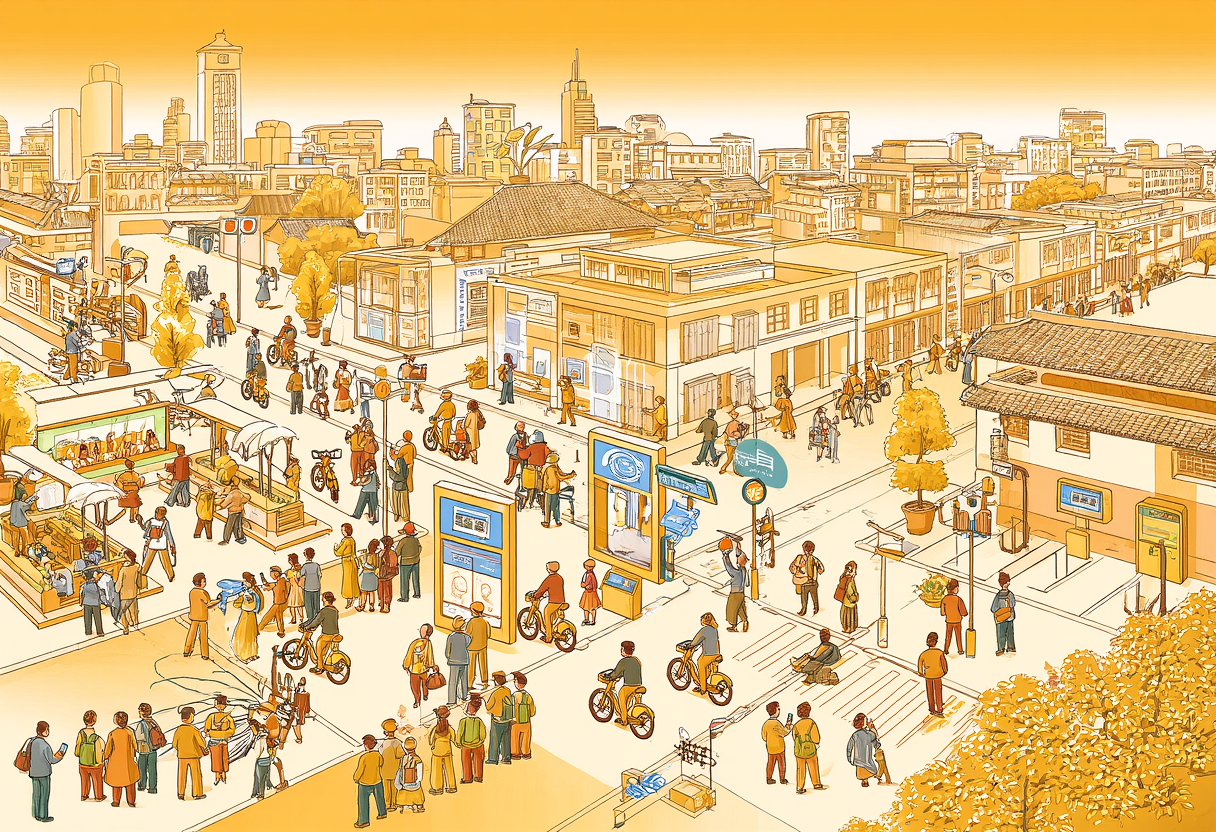Exploring the Future of Urban Tourism: Trends and Innovations
Urban Tourism is evolving rapidly, influenced by technology, sustainability, and changing traveler preferences. This article delves into the latest trends reshaping urban travel, highlighting innovations like smart city initiatives and experience-driven tourism, fostering deeper connections with local cultures.
Understanding Urban Tourism Today
Urban Tourism refers to travel focused on cities and urban areas, encapsulating cultural, historical, and social experiences. It has gained traction in recent years as travelers seek authentic local experiences. In this context, Urban Tourism plays a vital role in local economies, often resulting in job creation and enhancing public amenities. Furthermore, with the rise of social media, people are increasingly drawn to urban destinations that provide Instagram-worthy sights and vibrant atmospheres, pushing city planners to consider how Urban Tourism affects urban spaces. The unique blend of accessibility and diversity makes city travel appealing, continuously redefining the Urban Tourism landscape.
Technological Innovations Shaping Urban Tourism
As we delve deeper into Urban Tourism, it's essential to acknowledge the technological advancements transforming how we experience cities. Technologies like augmented reality (AR) and artificial intelligence (AI) are providing tourists with interactive experiences. For example, many urban hotspots now offer AR apps that enhance the exploration experience, allowing users to view historical data or animated features at specific sites. Such innovations make Urban Tourism not only more informative but also engaging. Moreover, technology helps diversify how services are provided, enabling seamless communication between visitors and local businesses, thus boosting Urban Tourism's reach and effectiveness in attracting a younger demographic.
Sustainability in Urban Tourism
Sustainability is a cornerstone in the discussion of Urban Tourism. As cities grapple with over-tourism, many municipalities are implementing measures to ensure that urban travel does not compromise local environments. Initiatives such as eco-friendly transportation options, waste reduction schemes, and promotion of local artisans contribute to a more sustainable Urban Tourism framework. Moreover, tourists are increasingly aware of their environmental footprint; traveling sustainably is becoming a priority among urban explorers. This trend encourages destinations to adapt, emphasizing green certifications and eco-tourism experiences, which ultimately enrich the Urban Tourism sector.
The Impact of Urban Tourism on Local Cultures
Urban Tourism is more than just a means of revenue; it profoundly impacts local cultures and societal dynamics. As tourists flock to urban centers, cultural exchange becomes inevitable. However, this interaction can sometimes lead to cultural dilution, necessitating efforts for preservation of local heritage. Cities that successfully balance Urban Tourism with community engagement often see enhanced cultural appreciation, where visitors and locals alike find common ground through shared experiences. Urban Tourism, therefore, serves as a double-edged sword, offering both opportunities and challenges that cities must navigate carefully.
Future Prospects of Urban Tourism
Looking ahead, Urban Tourism is set to embrace several emerging trends. Concepts such as experiential travel, where authenticity and personal connections are prioritized, will shape future itineraries. Furthermore, with the rise of remote working, urban destinations might begin catering to a new segment of long-term visitors seeking not just a place to stay, but a vibrant community to engage with. As Urban Tourism adapts to these new realities, cities are likely to enhance their infrastructure to serve a more diverse range of tourists. These directional shifts promise a reimagined Urban Tourism landscape, one that is more holistic and integrated with urban living.
Conclusion: Navigating the Urban Tourism Landscape
In conclusion, Urban Tourism stands at a unique crossroads of challenges and opportunities. Its evolution necessitates a collaborative approach among local governments, businesses, and communities to create a sustainable and enriching tourist environment. As cities embrace technology and sustainability, Urban Tourism will thrive, enriching urban spaces while preserving cultural integrity. This balanced approach will not only benefit tourists but also enhance quality of life for residents, making Urban Tourism a vital component of future city planning.
